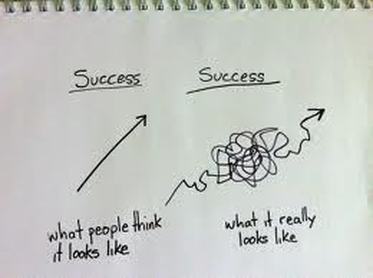|
By Bree Winkler, EdS, LPC, CAMS How can you cope with Life’s curveball?
1 Comment
 Do you ever notice how easy it is to slip into disrespect – via tone of voice, actions, and/or words? We all want respect, but what do we do to earn respect? The Golden Rule is “treat others the way you want to be treated.” However, the selfish mentality is “I’ll treat them with respect when they treat me with respect.” You Want the Respect before you Give them Respect. Choosing the later causes several problems:  I was at a church service recently, listening to a powerful message by Annie Downs. She asked “what if today is the best God has for you?” The auditorium full of thousands of people went silent. What IF today is the best it will be for me? What if all the things I hope and dream for are not in the plan, in the cards, or fate for me? I’m waiting, just as I’m sure you are too, for something. If I wait to see if A will happen before I made a choice between B and C, then I am stagnate. I’m in limbo. I’m stuck. Where do symptoms of anxiety and depression come from? From being stagnate… being in limbo… being stuck! Life isn’t about waiting, it is about LIVING! We hope for lots of things, we dream, we wish, and we desire: love, happiness, laughter, money, fame, or fill in the blank with your dream(s). Hope is necessary for motivation and goal setting. However, lack of decision making and forward movement is a sign of depression. Worry and agitation are symptoms of anxiety. Both problems arise when you stop living for today and, instead, wait for the unfulfilled promises of tomorrow. No one knows how their story will end. We don’t even know how today will end. No good comes from fear. A person shows fear when he or she is scared to move their life in one direction because it might prevent them from having other options. What if the original option is the path of success in reaching all your desires? BUT, you hope and pray that waiting on this other path will guide you to your dreams. If a door opens for a change, big or small, then check it out! Make a choice – to try this option or return to the previous option. Don’t stand still.  I’ve spent over 10 years as a middle school counselor. I truly believe this is the best age group to work with. They go through so many transitions – changing schools, friends shifting, physical transformations, learning new skills, creating study habits (or not), navigating family relationships, peer pressure, acquiring and refining hobbies, becoming socially aware of the world around them, understanding rules and limits, managing feelings, controlling behaviors, and trying to make good decisions… just to name a few! They need my support and guidance. The parents have been known to ask for guidance also! Any one of these events could be overwhelming, confusing, and/or frustrating for an adolescent. Without proper help to understand and cope with changes, individuals begin to develop maladaptive coping strategies. Some ways teenagers adapt poorly include aggression, disrespectful, depressed, self-mutilation, anxiety, eating disorders, sexual experimentation, or drugs and alcohol usage. School Anxiety and avoidance is on the rise. Teenager believe they cannot “handle” being at school. They complain the “pressure” to get good grades and act a certain way is too much. Parents worry: Is my child being bullied? Is the expectation to do homework and attend school every day too much? What happens for 8 hours while they are at school? It is scary for parents, and adolescents, to go to school unprepared. Luckily, I have several suggestions: DOs and DON’Ts for parents when helping their adolescent. Using these tried and true techniques will help you and your teenager to adapt appropriately to both middle school and changes in general.  Body image :( THIS is the biggest frustration in a female’s life. It starts before we can even label it, with princesses and seeking attention because “she’s so cute!” To adolescence, when we alternate between acceptance and hate of our clothes, face, various body parts, and appeal to others, especially how boys perceive us. Of course, our appearance changes daily, especially in middle and high school. Then we become adults, the time we are all looking forward to! Adulthood is the time when all the worry, doubt, and pain are behind us and we are full of confidence, security, and determination. Well… not for everyone… and not all the time… and not without constant self-reminders to be confident in our personality, character, and values. The media reminds females to place a value on their importance by how much other people accept and appreciate our “look.” The world values beautiful people. However, striving for perfect hair, body, and skin comes at a price. Can you ever be “perfect?” When is being kind, compassionate, smart, caring, faithful, funny, determined, friendly, healthy, and hard working going to be enough? Meghan Trainor reminds all females that “every inch of you is perfect from the bottom to the top” in All About That Bass (2014).  I have passion for my goals, so I prep and plan. I’m smart and educated. I’m a good person. Of course, everything will work out exactly how I always thought it would. Except, it didn’t!?! I’m confused. And I feel sad, disappointed, frustrated, and sometimes angry. How did this happen? Is it really true that I can’t have what I’ve always wanted? Did I really run out of time to accomplish this goal? Should I have made different choices along the way? Do I have to change my dreams, modify my goals … adjust?? Welcome to reality. It feels like a slap in the face. It hurts me emotionally. It fills my brain with racing thoughts. I repeat my unanswered question “why not?” to no avail. I feel defeated and lost. I want the outcome to be different. I want to know what I did wrong and how I can get back on track to reach my goals. Then, I remember: I am a counselor. I help people work through these same questions. I have 2 options: 1) I can wallow in self-pity or 2) I can accept this disappointment and adjust. Let’s look at my options: Anxiety is defined as “a state of apprehension” and “distress or uneasiness of mind.” Every person experiences a form of anxiety on a regular basis. Humans worry about money, jobs, relationships, health, choices, and a slew of others major and minor concerns. We need some anxiety -- it shows us what we don’t like or what we desire to have more of. For example, if you are married and fighting with your spouse all the time, anxiety is reminding you to work harder on creating a happy and healthy relationship so you will not continue to feel miserable or lose your spouse. Another example: if you desire to have more money or status at work, anxiety can motivate you to put in more effort, time, and focus to reach your goal. Anxiety can motivate us to change our current circumstances. This is great!  Wouldn’t it be great to have every day go smoothly? The day would be perfectly balanced emotionally and physically; filled with love and laughter, kind words, support, creativity, affirmation, and sense of accomplishment… without feeling rushed, exhausted, or frustrated! Oh, what a beautiful day! I struggle with desiring all of these things, but not always being able to achieve this level of happiness every day. |
Bree Winkler, LPC, Ed.SMy goal is to help you use coping skills, change thoughts, and manage behaviors in order to decrease anxiety and depression symptoms. Archives
March 2022
Categories
All
|
What's New in Therapy?
BLOG
Appointments:
Monday - Thursday:
morning and afternoon appointments



 RSS Feed
RSS Feed